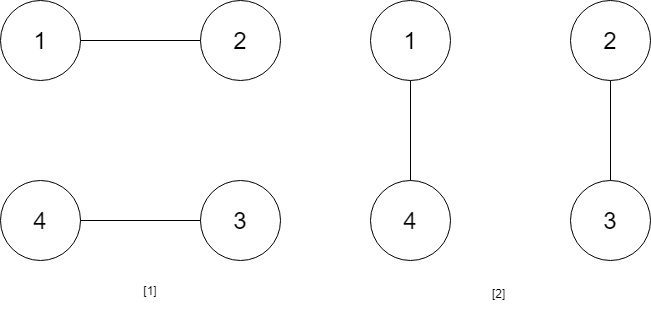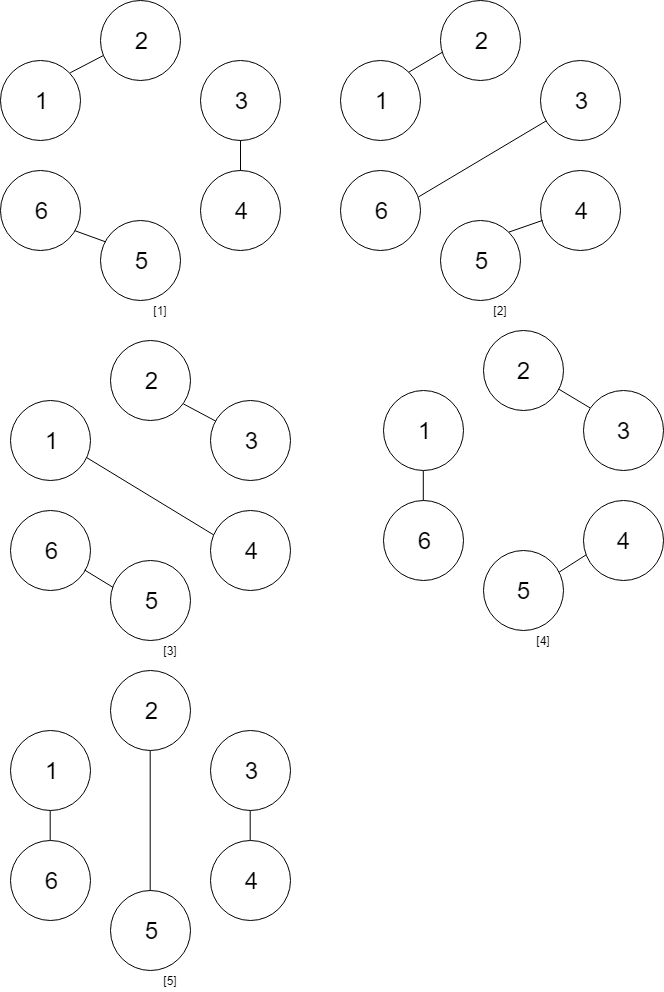1259 - Handshakes That Don't Cross (Hard)
Problem Link
https://leetcode.com/problems/handshakes-that-dont-cross/
Problem Statement
You are given an even number of people numPeople that stand around a circle and each person shakes hands with someone else so that there are numPeople / 2 handshakes total.
Return the number of ways these handshakes could occur such that none of the handshakes cross.
Since the answer could be very large, return it modulo 1e9 + 7.
Example 1:

Input: numPeople = 4
Output: 2
Explanation: There are two ways to do it, the first way is [(1,2),(3,4)] and the second one is [(2,3),(4,1)].
Example 2:

Input: numPeople = 6
Output: 5
Constraints:
2 <= numPeople <= 1000numPeopleis even.
Approach 1: Dynamic Programming
Person 1 can shake hand with person with even number but not with odd number because every time we need to divide the group into two sets. For example, if person 1 shakes hand with person 2, then there is an empty set and a set of people with numbers from 3 to n. If person 1 shakes hand with person 4, then the first set is person 2 + person 3 and the second set is from 5 to n. At the end, we would have a set from person 2 to n - 1 and an empty set.
In general, let be the number of ways these handshakes could occur such that none of the handshakes cross of for people. If person shakes hand with person , then we could divide into two sets - one from 2 to j - 1 and another one from j - 1 to i. The product of them would be the contribution to .
class Solution {
public:
int numberOfWays(int n) {
int M = 1e9 + 7;
vector<long long> dp(n + 1, 0);
dp[0] = 1;
for (int i = 2; i <= n; i += 2) {
for (int j = 2; j <= i; j += 2) {
// two sets :
// 1. [2 .. j - 1] = j - 1 - 2 + 1 = j - 2
// 2. [j + 1 .. i] = i - (j + 1) + 1 = i - j
dp[i] = (dp[i] + (dp[j - 2] * dp[i - j])) % M;
}
}
return dp[n];
}
};